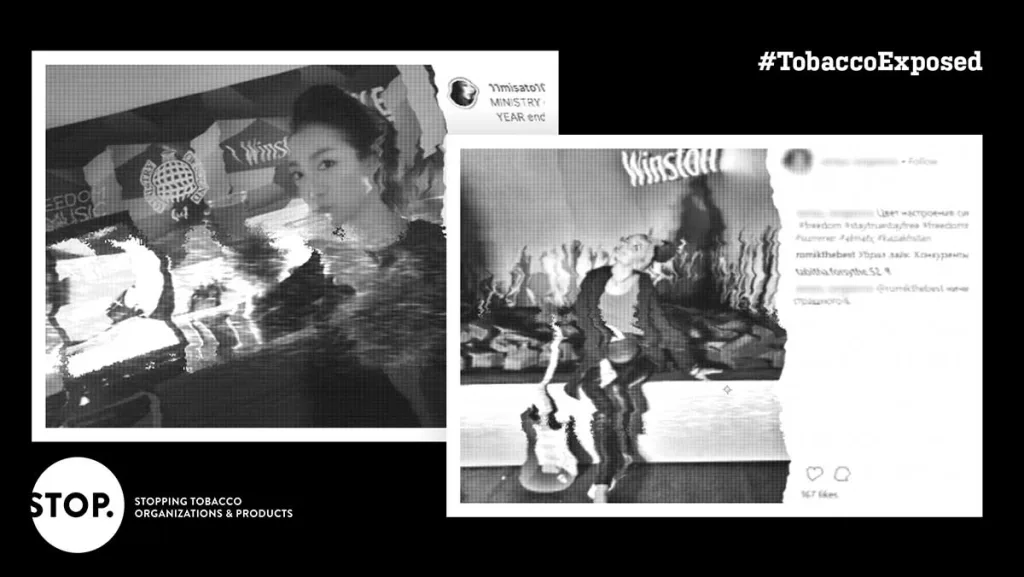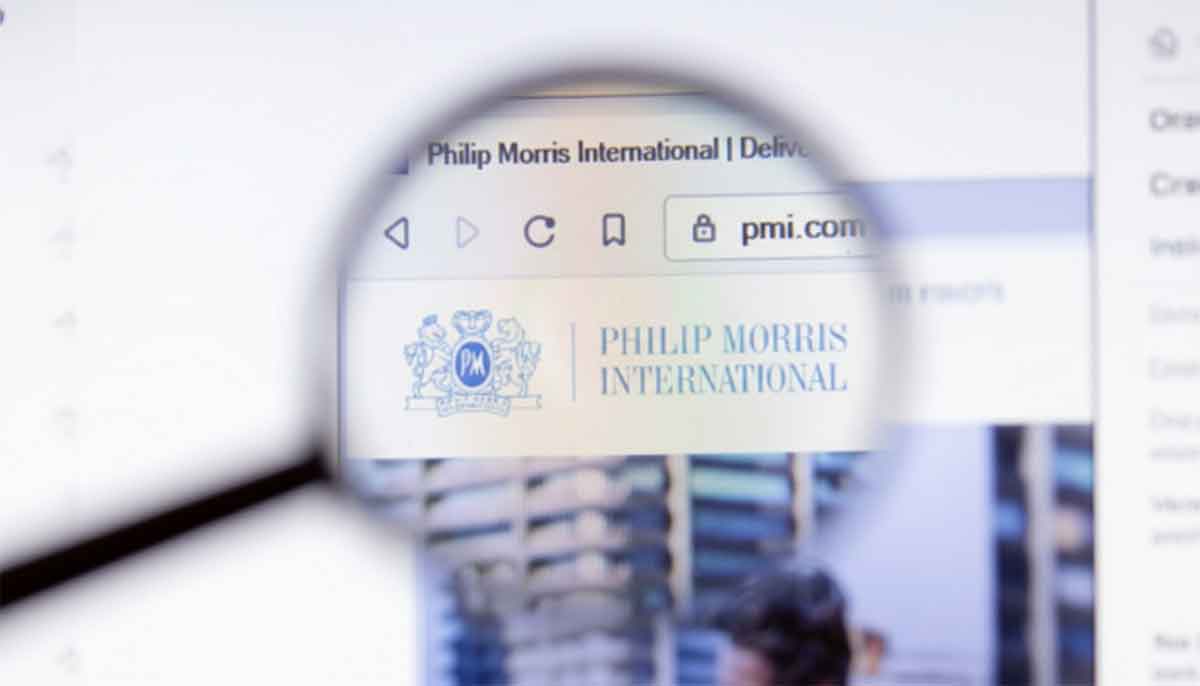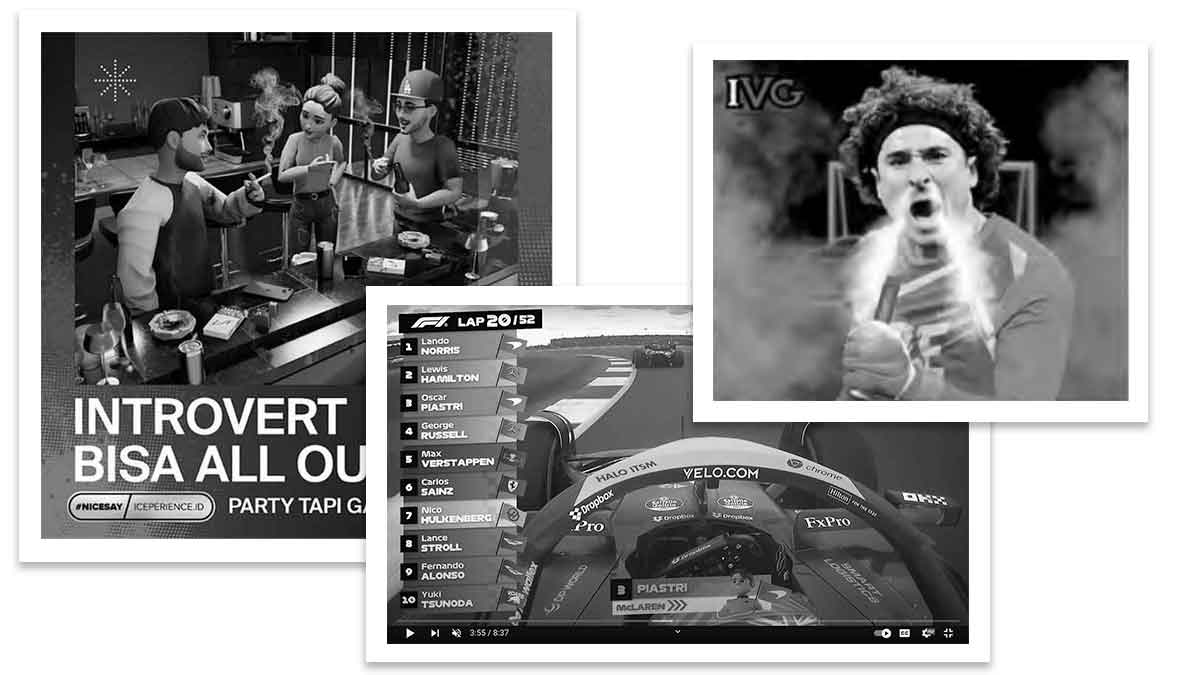- Resources
- News
-
-
Now Accepting Grant Funding Applications
Ready to tackle industry interference? Apply by February 25.
-
Get Email Updates
Sign up for STOP's emails and never miss an update on our latest work and the tobacco industry's activity.
-
Share a Tip
Do you have information on tobacco industry misconduct in your country? Let us know.
-
Now Accepting Grant Funding Applications
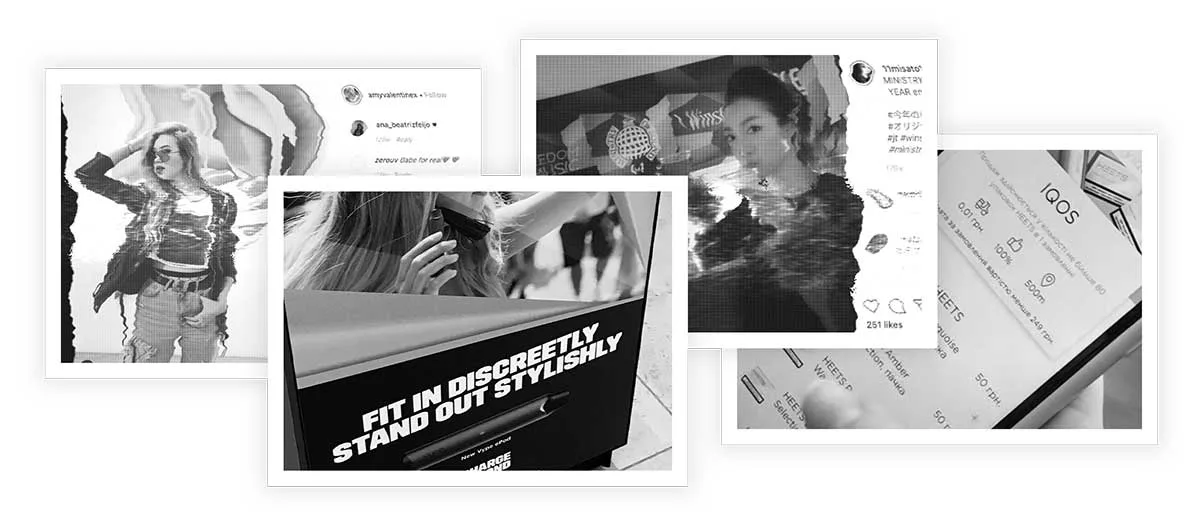
Picture this. You own a successful company—the only problem is, the product you sell ends up killing up to two-thirds of the people who use it. That means you’ll eventually run out of customers, and that’s bad for business.
Unless, that is, you can guarantee future profits by getting a new, younger generation addicted to your products.
This scenario is real. It’s exactly what the tobacco industry does when it targets young people. Tobacco companies are intentionally trying to normalize tobacco use and promote addictive products to younger generations so they can continue making money.
Here we lay out 10 examples of how tobacco companies have covertly and deliberately designed their products and marketing messages to exploit young people’s interests and get them addicted.
1. Philip Morris International (PMI) failed to add age verification to its new tobacco stick delivery service in Ukraine.
PMI, best known as the maker of Marlboro cigarettes, teamed up with a courier service in Ukraine to offer home delivery of HEETS, the tobacco sticks used in its flagship heated tobacco product, IQOS. But, as part of a social experiment, a 16-year-old found she was able to order HEETS through the courier’s app and have them delivered to her home without needing to verify her age. This omission gives underage consumers easy access to tobacco, without even leaving their home.
2. British American Tobacco (BAT) hired young models and influencers to promote its products on social media.
BAT—the second-largest tobacco company in the world—claims to have implemented a policy to not use models or influencers under the age of 25 in its advertisements. The tobacco company, however, broke its own rule according to a report in August 2019. It was caught paying two Instagram influencers, ages 21 and 24, to promote its heated tobacco product, glo, on social media.
3. Japan Tobacco International (JTI) held live music events as part of its “Stay True, Stay Free” marketing campaign for Winston cigarettes.
Exploiting the allure of nonconformity, JTI—maker of Winston and other popular cigarettes—hosted music events featuring the hashtag #FreedomMusic, and the slogan “Stay True, Stay Free.” Attendees of the music events were bombarded by JTI through promoters, photos ops, Winston signage and cigarette products. The events were held in Kazakhstan, Kyrgyzstan and the Philippines but heavy social media coverage of the events, many of which prominently feature the Winston brand, spread the message even further.
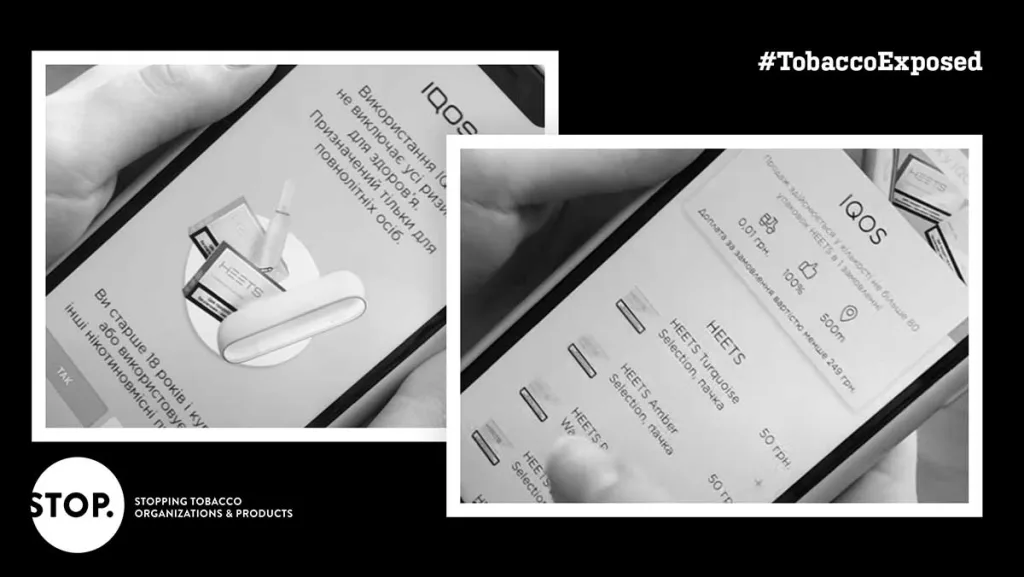
4. BAT chose strategic, youth-oriented hashtags to promote its Vype e-cigarette on social media.
If BAT chose hashtags that accurately represented the risks of e-cigarettes, it would drive young consumers away. That might be why the company used hashtags completely unrelated to tobacco, nicotine or e-cigarettes in social media postings. To insert itself into mainstream social media discussion, the company used hashtags related to youth-focused, pop culture events, including #Oscars2019, #bestactor and #londonfashionweek.
5. PMI engaged marketing tactics that have been historically used to attract youth.
PMI claims that IQOS is for adult smokers. Yet, a calculated five-year marketing campaign aligning IQOS with youth and glamour has boosted use of the heated tobacco product in Russia and Romania, researchers say. Further attempts to portray IQOS as an upscale lifestyle product, instead of the addictive tobacco product it is, include IQOS marketing and promotion at art exhibitions, malls, luxurious vacation destinations and music festivals—including a Tel Aviv University student music festival where attendees were as young as 16 years old.
6. Imperial Brands capitalized on social media’s youthful audience to market cigarettes.
While several other tobacco companies used social media to promote their next generation products to young people, Imperial Brands—the fourth-largest tobacco company in the world—boldly launched a social media campaign promoting its Davidoff cigarettes. The campaign ran in Bosnia, Malaysia and Egypt, and is reported to have been viewed more than 24 million times.
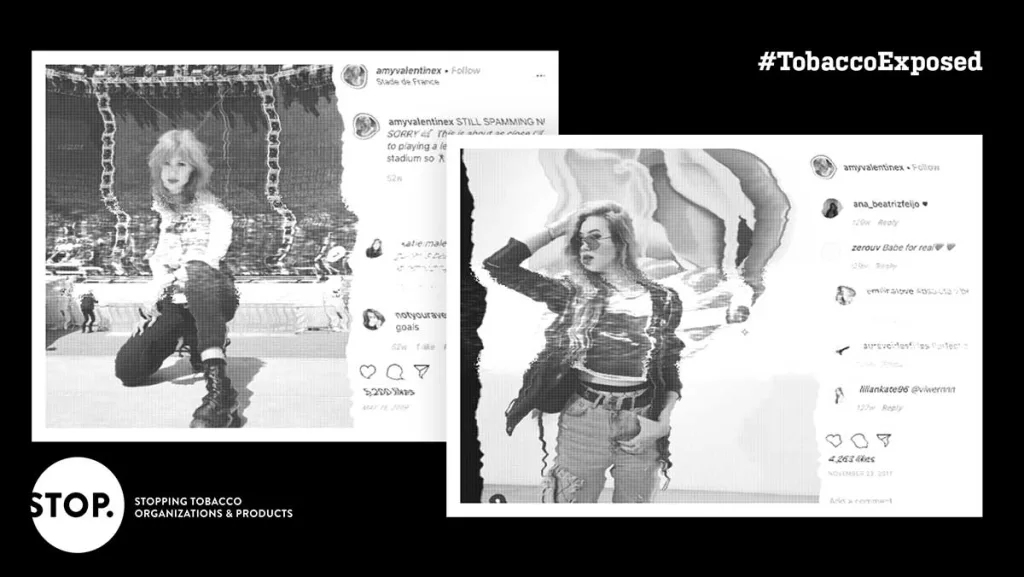
7. BAT sponsored a boat party and Instagram influencers at a Croatian music festival.
BAT ensured its glo heated tobacco product had a strong presence at the Defected Croatia festival and beyond. Not only did the company sponsor a boat party at the festival, BAT paid eight young, attractive European Instagram influencers to post pictures and videos of themselves at the beach, on boats and strolling through the city—all accompanied by glo’s campaign slogan, #TodayIWill. BAT also prompted users to like and share glo’s Instagram posts for a chance to win a trip to Ibiza in Spain.
8. PMI advertised Marlboro cigarettes using music-themed, limited-edition packaging in Israel.
The ads featured the slogan, “What’s Your Sound?” while exclusive, limited-edition packaging was designed to look like a speaker. The campaign shares a similar intent to appeal to youth, just as a previous controversial campaign, “Be Marlboro” had done. PMI was fined for that and the campaign was eventually withdrawn.
9. At a peak of the COVID-19 pandemic, BAT revealed new branding to appeal to the next generation of users it’s trying to hook.
Today’s youth were born into a world where the serious health harms of tobacco had already been proven and widely warned against. In a probable attempt to distance itself from the very product it sells, BAT revamped its logo, ditching the tobacco leaf and adding a rainbow color scheme and the tagline, “A Better Tomorrow.” This rebranding has been criticized as an effort to market to the younger, savvier generations it hopes to hook on its addictive products. (See how else BAT is using the COVID-19 pandemic to target young people.)
10. PMI launched a new cigarette brand and geared advertising toward youth in Indonesia.
Even though PMI invests heavily in PR campaigns to convince consumers it wants to “unsmoke” the world, the tobacco company released a new brand of high-tar, high-nicotine cigarettes in Indonesia. To promote the new brand, Philip Morris Bold, PMI launched its “You Decide” ad campaign, using the youth-focused themes of independence and spontaneity.
